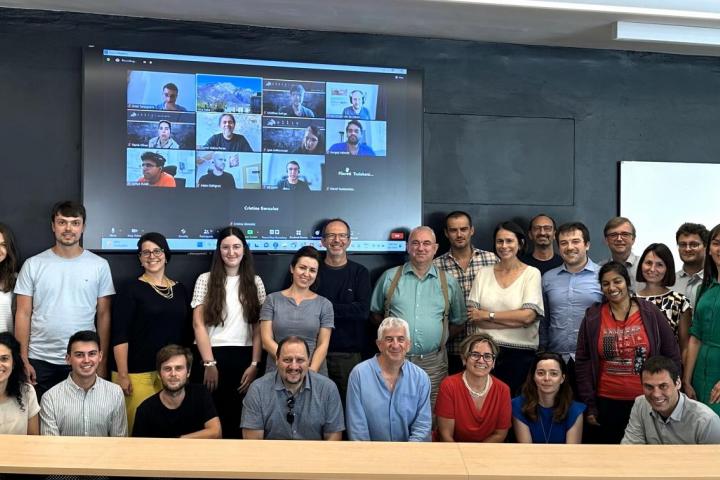
The European ELIAS project, which takes its name from the English title "European Lighthouse of Artificial Intelligence for Sustainability", is one of the most important networks of excellence in the field of AI and machine learning in terms of its scope and ambition. It connects 34 partners including universities, research institutions and industry from 17 countries. Over the next four years, they will work to develop new computational systems and mathematical models that will provide entirely new and achievable solutions to pressing societal challenges: environmental sustainability, equitable economic development and societal well-being. The focus is cross-disciplinary, including bridging the academic and business sectors at European level. AI research will also focus, for example, on developing models for climate change analysis based on monitoring extreme events in the atmosphere. The basis will be algorithms that can draw on and combine data from many domains and use it in real time.
"In addition to the research itself, the project will also support the expansion of the network of excellence in the field of AI and machine learning - here our institute has a significant role to play," says Dr. Josef Šivic, head of the research group focused on intelligent machine perception, who is also the principal investigator of the project for CIIRC CTU. "Attention will also be paid to the mobility of young scientists and supporting their motivation to establish innovative startups," adds Mr. Šivic, one of the best computer scientists in the Czech Republic, according to Research.com.
The project is coordinated by the University of Trento. The research tasks of ELIAS will be further refined, but it is already clear that it will focus, for example, on the development of systems to prevent cyber-attacks and the spread of disinformation, or on the use of artificial intelligence with environmental impacts, for example by using it to identify the best materials for the construction of green buildings and environmentally friendly industrial components. The main parameter will be the search for solutions that promote and achieve societal sustainability. Research into models for tracking the migration of people coming to Europe and exploring the motives behind their journeys is therefore also expected. The involvement of artificial intelligence in the ethical dissemination of internet advertising will also be explored.
"Technological advances in the broad field of artificial intelligence must contribute to improving the quality of life of individuals and society. A multidisciplinary approach is essential for the successful achievement of the objectives in the ELIAS network," says Prof. Vladimír Mařík, Scientific Director of the CIIRC CTU.